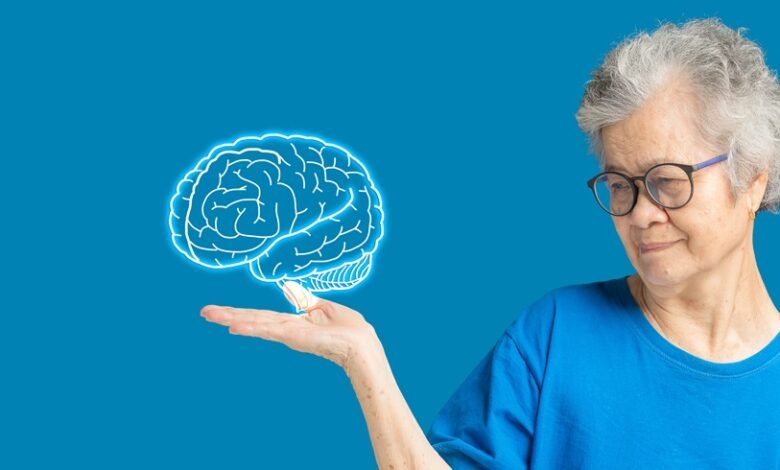The Impact of Alcohol Addiction on Brain Health

Alcohol addiction, also known as alcoholism, is a chronic disease that can have severe consequences on a person’s health, particularly on brain health. Understanding the impact of alcohol addiction on the brain is crucial for recognizing the importance of seeking help and treatment. This article explores how alcohol affects the brain, the long-term consequences of alcohol addiction, and the potential for recovery.
How Alcohol Affects the Brain
Immediate Effects
Alcohol is a central nervous system depressant that affects brain function almost immediately upon consumption. Some of the short-term effects of alcohol on the brain include:
– Impaired judgment and coordination: Alcohol slows down the brain’s communication pathways, leading to poor decision-making and reduced motor skills.
– Memory lapses: Even moderate drinking can cause short-term memory loss, often referred to as “blackouts.”
– Mood changes: Alcohol can alter mood, leading to increased aggression, depression, or euphoria.
Neurotransmitter Disruption
Alcohol interferes with neurotransmitters, the chemicals that transmit signals in the brain. Specifically, alcohol affects:
– GABA (gamma-aminobutyric acid): Alcohol enhances the effects of GABA, leading to sedation and relaxation.
– Glutamate: Alcohol inhibits glutamate, which can result in slowed brain activity and impaired cognitive functions.
– Dopamine: Alcohol increases dopamine release, which contributes to the pleasurable sensations associated with drinking but also reinforces addictive behaviors.
Long-Term Consequences of Alcohol Addiction
Brain Shrinkage
Chronic alcohol consumption can lead to brain shrinkage, particularly in the frontal lobe, which is responsible for executive functions such as planning, decision-making, and social behavior. Studies have shown that long-term heavy drinking can reduce the volume of both gray and white matter in the brain.
Cognitive Impairments
Long-term alcohol addiction can result in significant cognitive impairments, including:
– Memory deficits: Chronic alcohol use can lead to persistent memory problems and conditions like Wernicke-Korsakoff syndrome, a severe memory disorder caused by thiamine (vitamin B1) deficiency.
– Learning difficulties: Alcohol can impair the ability to form new memories and learn new information, affecting academic and professional performance.
– Reduced problem-solving skills: The impact on the frontal lobe reduces a person’s ability to think abstractly and solve problems effectively.
According to the National Institute on Alcohol Abuse and Alcoholism (NIAAA), chronic alcohol abuse can result in lasting changes to the brain’s structure and function, severely impacting cognitive abilities.
Mental Health Disorders
Alcohol addiction is often associated with various mental health disorders, including:
– Depression and anxiety:*Alcohol can exacerbate symptoms of depression and anxiety, creating a vicious cycle where individuals drink to cope with their mental health issues, only to have those issues worsen.
– Psychosis: In severe cases, chronic alcohol abuse can lead to alcohol-induced psychosis, characterized by hallucinations and delusions.
The Potential for Recovery
Neuroplasticity
The brain has a remarkable ability to heal and adapt, known as neuroplasticity. While some damage from alcohol addiction can be permanent, many brain functions can improve with sustained sobriety and proper treatment.
Benefits of Sobriety
– Cognitive improvement: Abstaining from alcohol can lead to significant improvements in memory, attention, and problem-solving skills over time.
– Emotional stability: Many individuals experience better emotional regulation and a reduction in symptoms of depression and anxiety after quitting alcohol.
– Enhanced brain health: With sustained sobriety, the brain can regain some of its lost volume and connectivity, leading to overall better brain health.
Treatment Options
Effective treatment for alcohol addiction often includes a combination of:
– Therapy: Cognitive-behavioral therapy (CBT) and other forms of counseling can help individuals understand and change their drinking behaviors.
– Support groups: Groups like Alcoholics Anonymous (AA) provide a supportive community and shared experiences that can be crucial for recovery.
– Medication: Certain medications can help reduce cravings and manage withdrawal symptoms, making it easier to maintain sobriety.
According to the Substance Abuse and Mental Health Services Administration (SAMHSA), comprehensive treatment plans that address both the psychological and physical aspects of addiction are essential for long-term recovery.
Conclusion: The Path to Healing
The impact of alcohol addiction on brain health is profound and far-reaching, affecting cognitive functions, emotional well-being, and overall brain structure. However, the potential for recovery offers hope. Through sustained sobriety, therapy, support, and a commitment to healthy living, many individuals can reclaim their brain health and lead fulfilling, sober lives. Recognizing the importance of seeking help is the first step towards recovery and improved brain health.
References
– National Institute on Alcohol Abuse and Alcoholism (NIAAA). (2020). Alcohol’s Effects on the Body. Retrieved from [NIAAA](https://www.niaaa.nih.gov/alcohols-effects-health/alcohols-effects-body)
– Substance Abuse and Mental Health Services Administration (SAMHSA). (2019). Key Substance Use and Mental Health Indicators in the United States. Retrieved from [SAMHSA](https://www.samhsa.gov/data/report/2019-nsduh-annual-national-report)
– American Psychological Association (APA). (2021). The Impact of Alcohol on Mental Health. Retrieved from [APA](https://www.apa.org/topics/alcohol-substance-use/impact)



